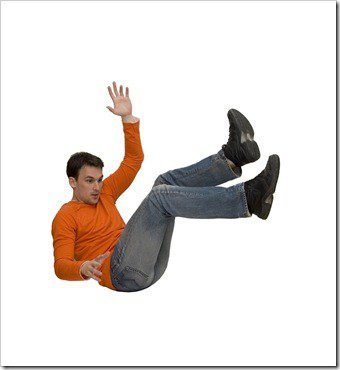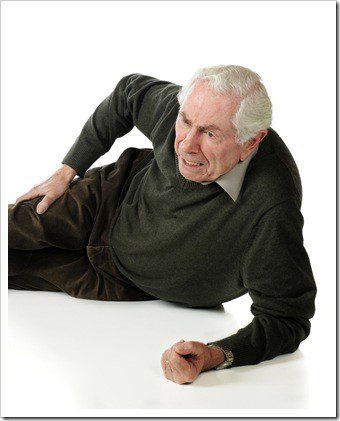Posts Tagged ‘Fall Prevention New Fairfield’
Welcome to Chiropractic Life and Wellness Center's Fall Prevention New Fairfield Archive. Here you can learn more about Chiropractic Life and Wellness Center, Chiropractic, and Dr. Brandon Chorney, today's choice for Chiropractors in New Fairfield, CT. Read Dr. Brandon Chorney's Chiropractic Fall Prevention New Fairfield for the health of it.
We look forward to serving you! Call - 203-746-6543.
by Dr. Brandon Chorney | Feb 28, 2013 | Health Articles

It is a sad reality that a fall can happen to anyone, no matter what your age, and the results of a fall can be anything from zero-injury to fatal. As you get older, however, the likelihood of a fall generally increases as your strength and co-ordination diminishes. Muscle strength and joint flexibility are less,...
Read More >>
by Dr. Brandon Chorney | Aug 23, 2011 | Health Articles

It is a sad reality that a fall can happen to anyone, no matter what your age, and the results of a fall can be anything from zero-injury to fatal.
As you get older, however, the likelihood of a fall generally increases as your strength and co-ordination diminishes. Muscle strength and joint flexibility are less, eyesight weakens, and poor hearing affects balance, all contributing to a propensity to take a tumble. Your nerves that communicate between your muscles and your brain can start to lose their signals, delaying your reactions so that any sudden imbalance is not always rectifiable before it turns into a fall. It may even be a problem in such simple tasks as sitting down or standing up.
Records show that nearly 2 million elderly people in the U.S. were treated in hospital emergency rooms for fall-related injuries in 2003, and 421,000 of them had to stay in hospital for extended treatment.
Thankfully, many trips and falls are preventable with a little forethought and planning. Research has shown that there are many risk factors that make a fall more likely, such as side-effects from medication, poor eyesight, trip hazards, and a too-sedentary lifestyle.
By being aware of the following risk areas, your danger of falling can be significantly reduced.
Home safety
Better than a third of all falls happen in the home as a result of trip hazards such as items left on the floor. Make sure to keep an eye out for anything that may impede your progress, and ask a family member or health care provider to help identify potentially dangerous issues around your home.
Regular exercise
Maintaining your strength, balance, coordination and flexibility for as long as possible can reduce your risk of falling. Regular exercise helps keep these in good order, so consider exercises such as walking, water workouts or Tai Chi, all of which are gentle and low-impact.
Tai Chi is an ancient form of Chinese martial arts, and is performed slowly and flowingly. Many parks and green areas throughout China are still full of people of all ages practicing this rejuvenating and powerful martial art. In light of this, scientists conducted an experimental program which was published in the Journal of Advanced Nursing. This study revealed that Tai Chi helped the elderly to improve their balance and flexibility and reduce their number of falls. Compared to a group that did not take the program, patients who practiced Sun style Tai Chi 3 times a week over 12 weeks greatly increased the strength of their knee and ankle muscles and improved their flexibility and mobility, so much so that they were half as likely to experience a fall as the non-Tai Chi group.
Medications
Certain medications prescribed to treat age-related conditions have side-effects that increase the likelihood of a fall, because they cause dizziness or lightheadedness. Taking a combination of medications can obviously increase the effects, as will consuming alcohol whilst on medication. (Alcohol on its own is enough of a risk factor.) It is not just doctor-prescribed medication, either. There are plenty of OTC medications that raise the risk of a fall, such as sleeping pills, painkillers, and cough medicines. Always seek the advice of a doctor or pharmacist before taking any medication so you at least know what side effects potentially exist, and so you can start on the lowest effective dose.
Eyesight
Poor vision increases the chances of a fall. Age-related diseases such as cataracts and glaucoma affect depth perception, visual acuity and vulnerability to glare. All of these mean it is harder to negotiate a safe path. Regular visits to your ophthalmologist are important to mitigate these risks, and remember that if you do wear glasses you need to keep them clean!
Osteoporosis risks
Osteoporosis is caused by several factors, chiefly hormonal changes, calcium and vitamin D deficiencies, and a lack of exercise. As the condition weakens the bones, they are more likely to fracture in the event of a fall. Make sure you get a sufficient intake of calcium (see the article on osteoporosis for more details), and enough Vitamin D to enable proper absorption of it. Exposure to sunlight is the best source of Vitamin D, but the more elderly may need a supplement.
Conclusion
If you are aware of the risk factors and take steps to avoid them, falling over does not have to be an inevitability of your later years. More physical exercise, changes in your lifestyle, and awareness of trip risks around the home can significantly reduce the likelihood of your having a fall. Although falling is by definition an unscheduled event, try not to land on your spine; rather, try to fall forward onto your hands or land on your buttocks. Most importantly, always try to protect your head from hitting any objects or striking the floor. Anyone living alone who fears they may fall should ask someone to check on them once a day, or organize a 24-hour home-monitoring service.


